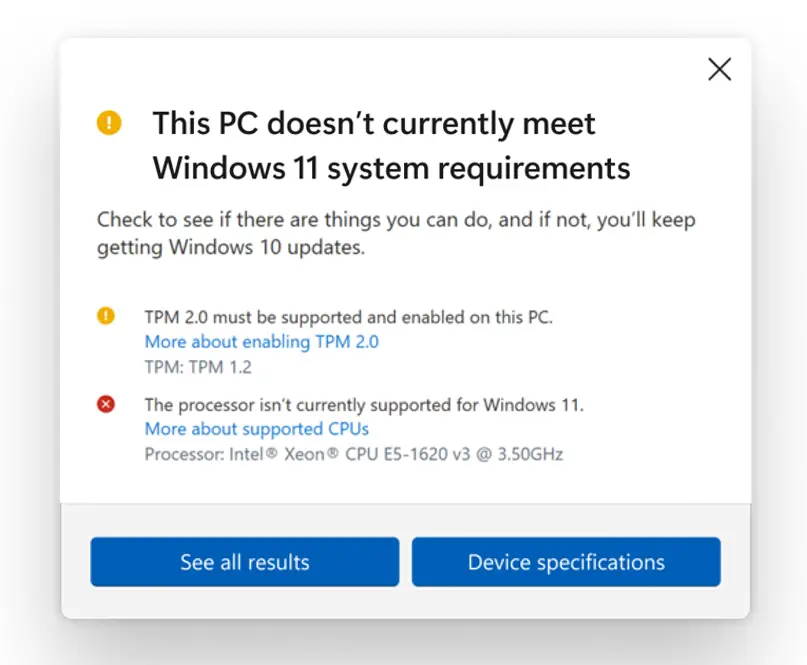Microsoft: the probability of a BSoD in Windows 11 running on unsupported devices has soared
Microsoft has made concessions on processor support. After the official version of Windows 11 is released, unsupported devices can also be installed through the media creation tool.
At present, Microsoft and its partners mainly support a limited number of processors from Intel and AMD, and they mainly support relatively new processors.
Among them, Intel’s supported processors are mainly the 8th generation and subsequent products, and AMD’s supported processors are mainly AMD RYZEN 2000 and subsequent products.
Why is Microsoft unwilling to provide support for older processors? In the final analysis, it is still a driver problem. According to Microsoft, the crash rate of old processors running Windows 11 has soared.
Microsoft uses telemetry technology to collect data on devices that have installed the Windows 11 preview version. The data shows that unsupported devices are more likely to crash.
The so-called unsupported devices are mainly devices whose hardware conditions do not meet the requirements of Windows 11, including processors that do not meet the requirements or do not have a security chip.

Microsoft explains:
Reliability: Devices that do not meet the minimum system requirements had 52% more kernel mode crashes. Devices that do meet the minimum system requirements had a 99.8% crash free experience.
From Windows Insider machines, those that did not meet the minimum system requirements had 52% more kernel mode crashes (blue screens) than those that did meet the requirements. Machines that met the requirements provided a 99.8% crash-free experience that is effectively managed by OEMs and IHVs through modern driver update management. Additionally, on unsupported hardware app hangs are 17% more likely and for first-party apps we see 43% more crashes.
Microsoft stated that the processors supported by the company follow the IHV driver guidelines and that these processors use modern drivers (DCH) for better compatibility.
The unsupported processor can only continue to use the old version of the driver, which will increase the probability of a kernel crash in the Windows 11 system.
As for these old processors, the reason why the new drivers cannot be obtained is whether the hardware itself cannot support it or the equipment manufacturers are unwilling to provide new drivers.





